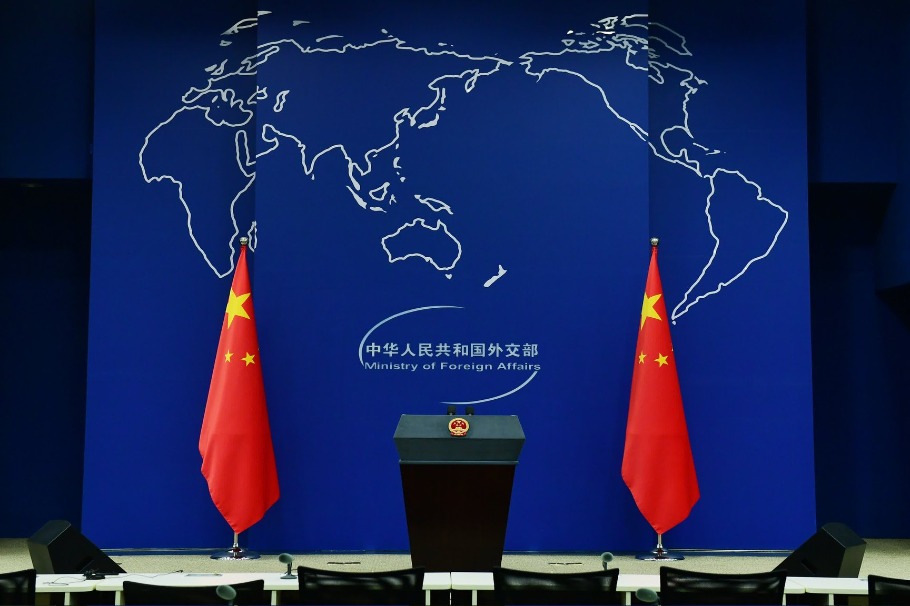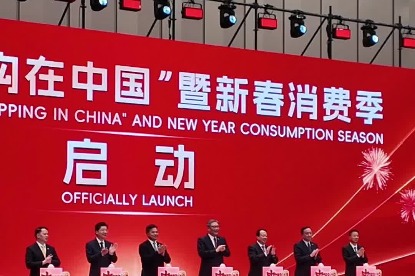Sci-tech innovation, industry integration key to prosperous Yangtze River Delta region
By Wang Xin in Shanghai | chinadaily.com.cn | Updated: 2024-12-03 13:38
With the strategy of coordinated regional development yielding fruitful results in the Yangtze River Delta region, scientific and technological innovation and its integration with industries is key to further drive high-quality growth in the region, experts and business leaders said on Friday at a Think Tank Summit held at Fudan University in Shanghai.
Organized by the Fudan Institute for Yangtze Delta Integration Studies and Fudan Development Institute, the summit gathered government officials, notable economists, business leaders, scientists and scholars, to share the latest research results and advise on various aspects of sci-tech innovation, industrial development, coordinated governance and more.
The integration of the YRD was elevated into a national strategy in November 2018, aiming to unleash greater vitality in the region. Last year on Nov 30, the YRD regional coordination on sci-tech innovation and industrial integration was especially highlighted, aiming to deepen reform and opening-up as well as build economic driving force for high-quality growth.
The YRD regional integration has yielded fruitful results over the past six years. Official data shows that the region's GDP has exceeded 30 trillion yuan ($4.14 trillion) in 2023, accounting for 24.4 percent of the national total.
"The portion of the region's GDP in the national total is expected to continue growing this year. China's economy has demonstrated strong resilience, to which the coordinated regional development contributed a lot while hedging against external challenges and risks," said Zhang Zhongwei, executive deputy director of the regional cooperation office of the Yangtze River Delta and deputy director of the Shanghai Municipal Development and Reform Commission, at the summit.
Zhang pointed out that the region has formed several world-leading innovation clusters, with continuously increasing investment into research and development which has continued to expand since 2018, reflecting the region's strong capacity for innovation.
Moreover, the Shanghai-Suzhou-Huzhou high-speed railway is set to officially open to traffic by the end of this year. Connecting Shanghai, Suzhou in Jiangsu province and Huzhou in Zhejiang province, the railway line is expected to play a significant role in the YRD regional integration by enhancing transportation links between major cities. And by the end of next year, the operating mileage of the high-speed railways in the region is expected to reach 8,000 kilometers, according to Zhang.
In addition to infrastructure constructions, Zhang also introduced the main focuses in the region's future development, among which sci-tech innovation and innovative industrial integration is spotlighted as key areas.
Zheng Yongnian, honorary president of the Institution of Politics and Economics at Shanghai Jiao Tong University, president of the Qianhai Institute for International Affairs and board director of Guangzhou Institute of the Greater Bay Area, noted that China's economy is facing a shift in momentum, and sci-tech innovation is expected to become the new power engine of growth.
Zheng added that sci-tech innovation is crucial to economic growth as it can bring new economic activities. However, he noticed that there is a big gap between sci-tech research and its conversion in industries in China.
"We have an increasing number of papers, but very few of them are translated into actual technical and economic results. We still have a lot to improve in the systems of education, talent and scientific research," said Zheng.
He pointed out that sci-tech innovation does not stand alone but should be integrated with talent and education systems. He advised that the nation needs to carry out reforms to strengthen basic science, technique conversion and financial support to unleash the practical value of sci-tech innovation.
"It has become a consensus that the internet and artificial intelligence stand as the core of the fourth Industrial Revolution. The three previous industrial revolutions are about using new techniques and tools to serve humans, but the core function of the internet and AI is to interact, which will affect humans in reverse," said Zheng.
Zheng also warned that the future of economic growth lies in new economic activities brought by new technologies. China needs to catch up to its Western counterparts and construct a scientific system with high efficiency, so as to avoid dependency on them in the AI era.
























